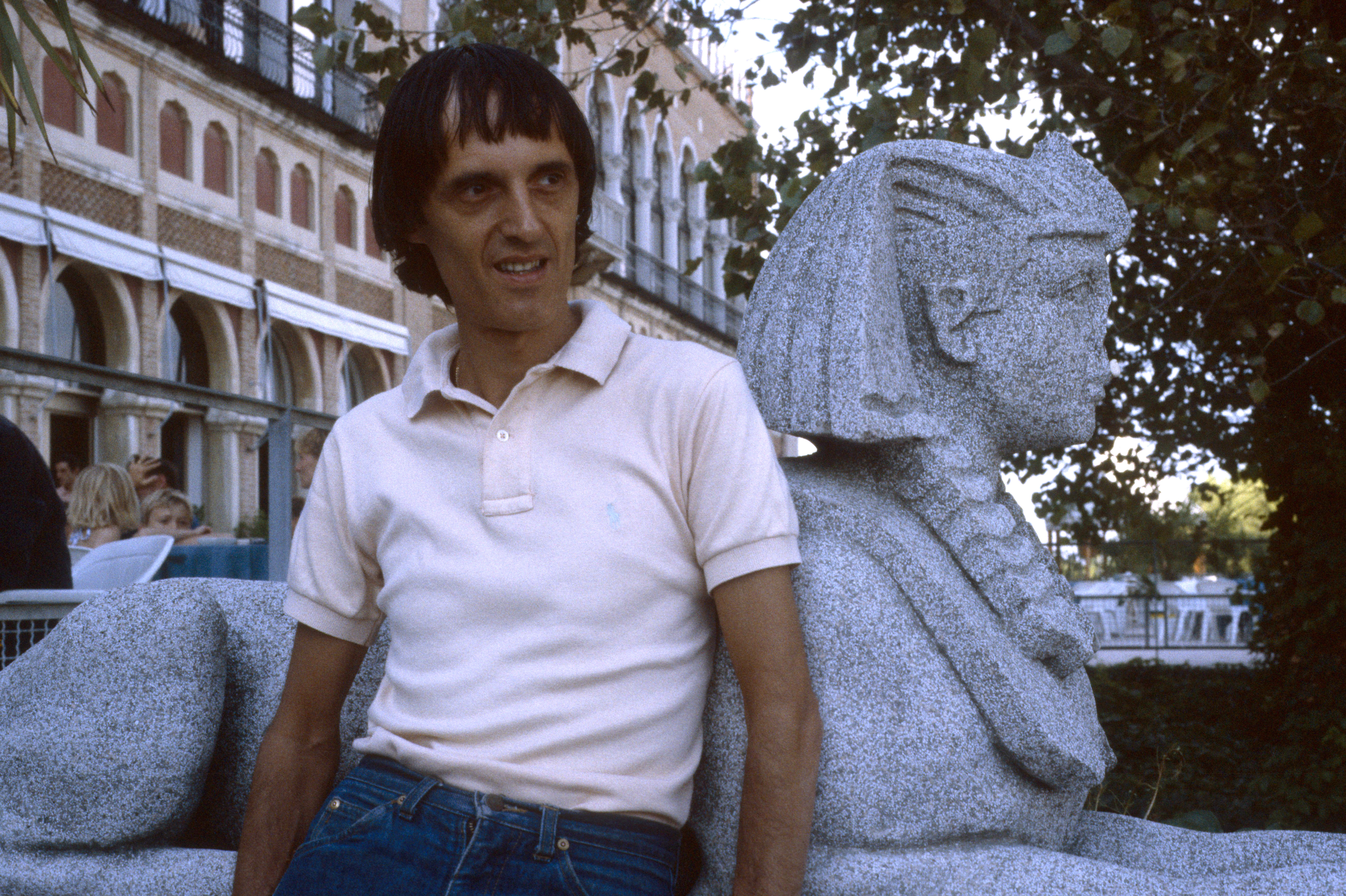|
Ennio Morricone
Ennio Morricone ( , ; 10 November 19286 July 2020) was an Italian composer, Orchestration, orchestrator, conductor, trumpeter, and pianist who wrote music in a wide range of styles. With more than 400 film score, scores for cinema and television, as well as more than 100 classical works, Morricone is widely considered one of the most prolific and greatest List of film score composers, film composers of all time. He received List of awards and nominations received by Ennio Morricone, numerous accolades including two Academy Awards, three Grammy Awards, three Golden Globes, six BAFTAs, ten David di Donatello, eleven , two European Film Awards, the Golden Lion, Golden Lion Honorary Award, and the Polar Music Prize in 2010. His filmography includes more than 70 award-winning films, all of Sergio Leone's films since ''A Fistful of Dollars'', all of Giuseppe Tornatore's films since ''Cinema Paradiso'', Dario Argento's ''Animal Trilogy'', as well as ''The Battle of Algiers'' (1966), ' ... [...More Info...] [...Related Items...] OR: [Wikipedia] [Google] [Baidu] |
Order Of Merit Of The Italian Republic
The Order of Merit of the Italian Republic () is the most senior Italian order of merit. It was established in 1951 by the second President of Italy, President of the Italian Republic, Luigi Einaudi. The highest-ranking honour of the Republic, it is awarded for "merit acquired by the nation" in the fields of science, literature, arts, economy, public service, and social, philanthropic and humanitarian activities and for long and conspicuous service in civilian and military careers. The post-nominal letters for the order are OMRI. The order effectively replaced national orders such as the Civil Order of Savoy (1831), the Order of the Crown of Italy (1868), the Order of Saints Maurice and Lazarus (1572) and the Supreme Order of the Most Holy Annunciation (1362). Grades Investiture takes place twice a year – on 2 June, the anniversary of the 1946 Italian institutional referendum, foundation of the Republic, and on 27 December, the anniversary of the promulgation of the Cons ... [...More Info...] [...Related Items...] OR: [Wikipedia] [Google] [Baidu] |
Grammy Awards
The Grammy Awards, stylized as GRAMMY, and often referred to as The Grammys, are awards presented by The Recording Academy of the United States to recognize outstanding achievements in music. They are regarded by many as the most prestigious and significant awards in the music industry in the United States, and thus the show is frequently called "music's biggest night". The trophy depicts a gilded gramophone, and the original idea was to call them the "Gramophone Awards". The Grammys are the first of the Big Three networks' major music awards held annually, and are considered one of the four major annual American entertainment awards with the Academy Awards (for films), the Emmy Awards (for television), and the Tony Awards (for theater). The first Grammy Awards ceremony was held on May 4, 1959, to honor the musical accomplishments of performers for the year 1958. After the 2011 ceremony, the Recording Academy overhauled many Grammy Award categories for 2012. The 67th Annua ... [...More Info...] [...Related Items...] OR: [Wikipedia] [Google] [Baidu] |
The Battle Of Algiers
''The Battle of Algiers'' (; ) is a 1966 Italian-Algerian war film co-written and directed by Gillo Pontecorvo. It is based on action undertaken by rebels during the Algerian War (1954–1962) against the French government in North Africa, the most prominent being the eponymous Battle of Algiers, the capital of Algeria. It was shot on location in a Roberto Rossellini-inspired newsreel style: in black and white with documentary-type editing to add to its sense of historical authenticity, with mostly non-professional actors who had lived through the real battle. The film's score was composed by Pontecorvo and Ennio Morricone. It is often associated with Italian neorealist cinema. The film concentrates mainly on revolutionary fighter Ali La Pointe during the years between 1954 and 1957, when guerrilla fighters of the FLN went into Algiers. Their actions were met by French paratroopers attempting to regain territory. The highly dramatic film is about the organization of a guerri ... [...More Info...] [...Related Items...] OR: [Wikipedia] [Google] [Baidu] |
Dario Argento
Dario Argento (; born 7 September 1940) is an Italian film director, screenwriter and producer. His influential work in the horror film, horror and giallo genres during the 1970s and 1980s has led him to being referred to as the "Master of the Thrill" and the "Master of Horror". His films as director include his "Animal Trilogy", consisting of ''The Bird with the Crystal Plumage'' (1970), ''The Cat o' Nine Tails'' (1971) and ''Four Flies on Grey Velvet'' (1971); his "The Three Mothers, Three Mothers" trilogy, consisting of ''Suspiria'' (1977), ''Inferno (1980 film), Inferno'' (1980) and ''The Mother of Tears'' (2007); and his stand-alone films ''Deep Red'' (1975), ''Tenebrae (film), Tenebrae'' (1982), ''Phenomena (film), Phenomena'' (1985) and ''Opera (1987 film), Opera'' (1987). He co-wrote the screenplay for Sergio Leone's ''Once Upon a Time in the West'' (1968) and served as George A. Romero's script consultant on ''Dawn of the Dead (1978 film), Dawn of the Dead'' (1978), for ... [...More Info...] [...Related Items...] OR: [Wikipedia] [Google] [Baidu] |
Cinema Paradiso
''Cinema Paradiso'' (, , ) is a 1988 Coming-of-age film, coming-of-age comedy-drama film written and directed by Giuseppe Tornatore. Set in a small Sicilian town, the film centres on the friendship between a young boy and an aging projectionist who works at the titular movie theatre. The Italian-French Co-production (media), co-production stars Philippe Noiret, Jacques Perrin, Antonella Attili, Pupella Maggio and Salvatore Cascio. The film score was composed by Ennio Morricone and his son, Andrea Morricone, Andrea, marking the beginning of a collaboration between Tornatore and Morricone that lasted until Morricone's death in 2020. Credited with revitalizing Italy's film industry, ''Cinema Paradiso'' has been cited as List of films voted the best, one of the greatest films of all time, and a world cinema classic. The ending is considered among the greatest endings in film history. It was a commercial success, and won several awards, including the Academy Award for Best Foreign La ... [...More Info...] [...Related Items...] OR: [Wikipedia] [Google] [Baidu] |
Giuseppe Tornatore
Giuseppe Tornatore (born 27 May 1956) is an Italian film director and screenwriter. He is considered one of the directors who brought critical acclaim back to Italian cinema.Katz, Ephraim, "Italy," ''The Film Encyclopedia'' (New York: HarperResource, 2001), pp. 682-685. In a career spanning over 30 years he is best known for directing and writing drama films such as ''Everybody's Fine (1990 film), Everybody's Fine'', ''The Legend of 1900'', ''Malèna (film), Malèna'', ''Baarìa (film), Baarìa'' and ''The Best Offer''. His most noted film is ''Cinema Paradiso'', for which Tornatore won the Academy Award for Best Foreign Language Film. He has also directed several advertising campaigns for Dolce & Gabbana. Tornatore is also known for his long-standing association with composer Ennio Morricone, who composed music for thirteen Tornatore feature films since 1988. Life and career Born in Bagheria, near Palermo, Tornatore developed an interest in acting and the theatre from at leas ... [...More Info...] [...Related Items...] OR: [Wikipedia] [Google] [Baidu] |
A Fistful Of Dollars
''A Fistful of Dollars'' (, (''For a Fistful of Dollars'')) is a 1964 spaghetti Western film directed by Sergio Leone and starring Clint Eastwood in his first leading role, alongside Gian Maria Volonté, Marianne Koch, Wolfgang Lukschy, Sieghardt Rupp, José Calvo, Antonio Prieto and Joseph Egger. The film, an international co-production between Italy, West Germany and Spain, was filmed on a low budget (reported to be US$200,000), and Eastwood was paid $15,000 for his role. Released in Italy in 1964 and in the United States in 1967, the film initiated the popularity of the spaghetti Western genre. It is considered a landmark in cinema and one of the greatest and most influential films of all time. It was followed by ''For a Few Dollars More'' and ''The Good, the Bad and the Ugly'', both also starring Eastwood. Collectively, these three films became known as the ''Dollars Trilogy'', or the ''Man with No Name Trilogy'', after the United Artists publicity campaign referre ... [...More Info...] [...Related Items...] OR: [Wikipedia] [Google] [Baidu] |
Sergio Leone
Sergio Leone ( ; ; 3 January 1929 – 30 April 1989) was an Italian filmmaker, credited as the pioneer of the spaghetti Western genre. He is widely regarded as one of the greatest directors in the history of cinema. Leone's film-making style includes juxtaposing extreme Close-up, close-up shots with lengthy long shots. His films include the Dollars Trilogy of Westerns featuring Clint Eastwood: ''A Fistful of Dollars'' (1964), ''For a Few Dollars More'' (1965), and ''The Good, the Bad and the Ugly'' (1966); and the ''Once Upon a Time'' films: ''Once Upon a Time in the West'' (1968), ''Duck, You Sucker!'' (1971), and ''Once Upon a Time in America'' (1984). Early life Born on 3 January 1929 in Rome, Leone was the son of the cinema pioneer Vincenzo Leone (known as Roberto Roberti or Leone Roberto Roberti) and silent film actress Edvige Valcarenghi (known as Bice Waleran). His mother was of Milanese and remote Austrians, Austrian descent. During his schooldays, Leone was a classm ... [...More Info...] [...Related Items...] OR: [Wikipedia] [Google] [Baidu] |
Polar Music Prize
The Polar Music Prize is a Swedish international award founded in 1989 by Stig Anderson, best known as the manager of the Swedish band ABBA, with a donation to the Royal Swedish Academy of Music. The award is annually given to one contemporary musician and one classical musician. Exceptions were made in 2001, when it was awarded to three musicians (one composer, one contemporary musician and one inventor), and 2003, when it was awarded only to one musician. Without any restrictions of nationality, the prize is to be "awarded for significant achievements in music and/or musical activity, or for achievements which are found to be of great potential importance for music or musical activity, and it shall be referable to all fields within or closely connected with music". The prize has been called the " Nobel Prize of Music" in Sweden. The awards were first presented in 1992. The recipients were Sir Paul McCartney and the three Baltic States: Estonia, Latvia, and Lithuania. Each of ... [...More Info...] [...Related Items...] OR: [Wikipedia] [Google] [Baidu] |
Golden Lion
The Golden Lion () is the highest prize given to a film at the Venice Film Festival. The prize was introduced in 1949 by the organizing committee and is regarded as one of the film industry's most prestigious and distinguished prizes. In 1970, a second Golden Lion award was introduced, an honorary prize for people who have made an important contribution to cinema. The prize was introduced in 1949 as the Golden Lion of Saint Mark (which was one of the best known symbols of the ancient Republic of Venice). In 1954, the prize was permanently named the Golden Lion. History The first Golden Lion was awarded in 1949. Previously, the equivalent prize was the Gran Premio Internazionale di Venezia (Grand International Prize of Venice), awarded in 1947 and 1948. No Golden Lions were awarded between 1969 and 1979. According to the Biennale's official website, the hiatus was a result of the 1968 Lion being given to the radically experimental '' Die Artisten in der Zirkuskuppel: Ratlos' ... [...More Info...] [...Related Items...] OR: [Wikipedia] [Google] [Baidu] |
European Film Awards
The European Film Awards (or European Film Academy Awards) have been presented annually since 1988 by the European Film Academy to recognize excellence in European cinematic achievements. The awards are given in 19 categories, of which the most important is the Best Film. They are restricted to European cinema and European producers, directors and actors. The awards were officially also called the "Felix Awards" until 1997, in reference to the former award's trophy statuette, which was replaced by a feminine statuette. Since 1997, the European Film Awards have been held in early- to mid-December. Hosting duties have alternated between Berlin Berlin ( ; ) is the Capital of Germany, capital and largest city of Germany, by both area and List of cities in Germany by population, population. With 3.7 million inhabitants, it has the List of cities in the European Union by population withi ..., Germany in odd-numbered years and other Lists of cities in Europe, European cities in ... [...More Info...] [...Related Items...] OR: [Wikipedia] [Google] [Baidu] |
Nastro D'Argento
The (plural: ''Nastri d'Argento''; English: Silver Ribbon) is an Italian film award, held since 1946 by the ''Sindacato Nazionale Giornalisti Cinematografici Italiani'' (Italian National Union of Film Journalists). Awards are given annually in a wide range of categories, covering not only feature films but also short films (''Corti d'argento'') and television series (''Nastri d'Argento Grandi Serie''). The main awards are given at Taormina Film Fest, Sicily, while the short film awards ceremony is held in Naples. History The Nastri d'Argento awards, which are also known by their name in English, Silver Ribbons, have been given each year since 1946 by the Italian National Syndicate of Film Journalists (Italian: ''Sindacato Nazionale Giornalisti Cinematografici Italiani''). From 1950, the main award was Best Director, with no award given for Best Film until sometime after 1991. This is because it was assumed that the best director made the best film. This was different from ... [...More Info...] [...Related Items...] OR: [Wikipedia] [Google] [Baidu] |






